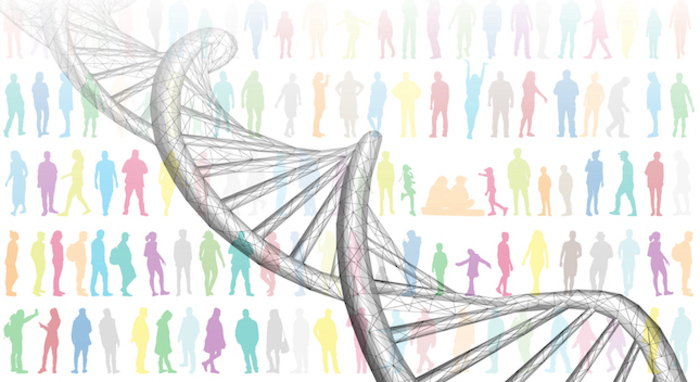LA JOLLA, CA—New research shows how genetic variations linked to severe cases of COVID-19 affect our immune cells.

Credit: La Jolla Institute for Immunology
LA JOLLA, CA—New research shows how genetic variations linked to severe cases of COVID-19 affect our immune cells.
The study, led by scientists at La Jolla Institute for Immunology (LJI), is one of the first in-depth look at the connections between COVID-19 severity and gene expression in many types of immune cells. This work could guide the development of new COVID-19 therapies to boost immune cell function.
Among their findings, the researchers report that a gene in a cell type called non-classical monocytes, which are part of the body’s “first responder” team of innate immune cells, could be a potential target for COVID-19 therapies.
“This study highlights the power of human genetics to uncover novel pathways linked to disease,” says LJI Professor Pandurangan Vijayanand, M.D., Ph.D., senior author of the Nature Communications study.
The science community has identified many genetic differences, called polymorphisms, they call “severe COVID-19-risk variants.” These genetic variants are associated with gene expression and appear to influence case severity. Yet scientists didn’t know which immune cells are most affected by these risk variants.
For the new study, Vijayanand and his colleagues combined patient genetic data from the COVID-19 Host Genetic Initiative and LJI’s open-access Database of Immune Cell Epigenomes (DICE) to define the genes and susceptible cell types affected by these risk variants. The team looked at 13 subtypes of the body’s key protective and virus-fighting cells: T cells, B cells, NK cells and monocytes.
“There are many different immune cell types, and they all contribute small functions to the global picture,” says study first author Benjamin Schmiedel, Ph.D., an instructor at LJI. “We have to look at every immune cell type separately to figure out how the immune system is able to respond to COVID.”
The researchers identified several important associations of genetic variants with genes. Among them was a risk variant that affected 12 of the 13 cell types studied. This severe COVID-19-risk variant in chromosome 21 was associated with reduced expression of a receptor on cells called IFNAR2. This receptor is part of a signaling pathway that alerts the immune system to infection. This new association may help explain why some people fail to mount a strong immune response to SARS-CoV-2.
Meanwhile, a risk variant on chromosome 12 displayed the strongest effect in non-classical monocytes, a type of innate immune cell that patrols the body and sends signaling molecules to alert other immune cells to threats. The risk variant led non-classical monocytes to reduce expression of a gene called OAS1. A lack of OAS1 expression could hobble the body’s defenses by reducing the expression of a family of proteins that normally degrades viral RNA and activates the immune system’s antiviral responses.
“Non-classical monocytes are a rare, understudied cell type,” says Schmiedel. “They only make up about two percent of immune cells.”
Schmiedel hopes to conduct further pre-clinical assessments to determine the role of these genes in COVID-19 pathogenesis. “That we can identify these kinds of genetic mechanisms is a big step forward,” he says. “We can use the information out there, combine it with our data on immune cells, and find potential targets for therapy.”
Additional authors of the study, “COVID-19 genetic risk variants are associated with expression of multiple genes in diverse immune cell types,” include Job Rocha, Cristian Gonzalez-Colin, Sourya Bhattacharyya, Ariel Madrigal, Christian H. Ottensmeier, Ferhat Ay and Vivek Chandra.
The study was supported by the National Institute of Health (grants R24-AI108564, R35-GM128938, S10RR027366, S10OD016262 and S10OD025052) and the William K. Bowes Jr. Foundation.
DOI: 10.1038/s41467-021-26888-3
###
About La Jolla Institute for Immunology
The La Jolla Institute for Immunology is dedicated to understanding the intricacies and power of the immune system so that we may apply that knowledge to promote human health and prevent a wide range of diseases. Since its founding in 1988 as an independent, nonprofit research organization, the Institute has made numerous advances leading toward its goal: life without disease.
Journal
Nature Communications
Method of Research
Experimental study
Subject of Research
Human tissue samples
Article Title
COVID-19 genetic risk variants are associated with expression of multiple genes in diverse immune cell types
Article Publication Date
19-Nov-2021




